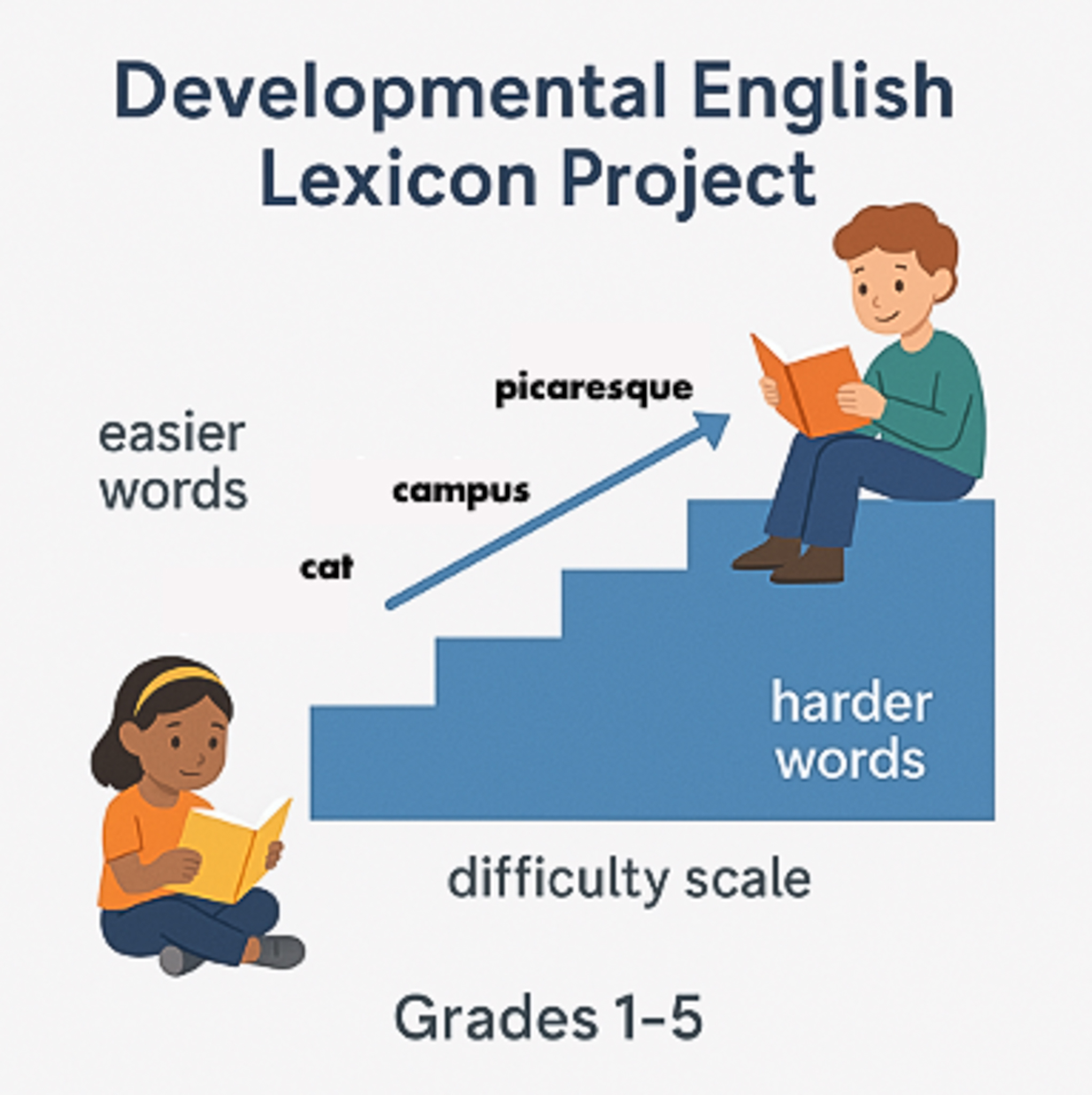English spelling is described as quasi-regular, meaning a system in which the relationship between input (i.e., orthography) and output (i.e., phonology) is systematic, but with many inconsistencies (often referred to as exceptions). Quasi-regular orthographies, such as English, place added demands on word reading development in children. As a result, English is particularly difficult for developing readers, which requires them to develop a diverse set of decoding strategies. Even with a diverse set of decoding strategies, some words are more difficult for children to learn to read than others (e.g., suede and yacht). However, currently we do not understand all the factors that contribute to differences in word reading difficulty in children.

The developmental English Lexicon Project (d-ELP) is a database comprising continuous IRT-based word reading difficulty estimates for 9,961 of the most frequently printed English words for US children, along with accompanying word characteristics. Data on isolated word reading accuracy were collected from 1,907 children in grades 1-5 across multiple US sites. This project expands the scientific infrastructure for research on reading development and provides a much-needed, large-scale dataset for developing readers’ behavior. It purposely samples, for the first time, readers from varied demographic backgrounds and reading skills (with over-sampling of individuals with and at-risk for reading difficulties), to allow for analyses of individual differences in word reading development. The d-ELP database is now available publicly, for noncommercial use, providing a valuable resource for teachers, school leaders, researchers, and educational publishers and policy makers.
Open Access: The d-ELP database is licensed under a noncommercial use Creative Commons Attribution 4.0 International License, which permits use, sharing, distribution without deviation, as long as you give appropriate credit to the original author(s) and the source and provide a link to the Creative Commons license, and the database is used for noncommercial purposes. For uses outside the Creative Commons license (i.e., your intended use is not permitted by statutory regulation or exceeds the permitted use) you will need to obtain permission directly from Donald Compton (dcompton@fcrr.org). For further information on licensure, visit https://creativecommons.org/licenses/by-nc-nd/4.0/.
Request Access to the Database
Reference the following (attribution is required for use): Compton, D. L., Rueckl, J. G., Steacy, L. M., Siegelman, N., Edwards, A. A., Petscher, Y., Patton-Terry, N., Cooper Borkenhagen, M. J., & Starke, C. (under review). The developmental English Lexicon Project (d-ELP): Continuous word reading difficulty estimates of the 9,961 most frequently printed English words for US children. Behavioral Research Methods.

